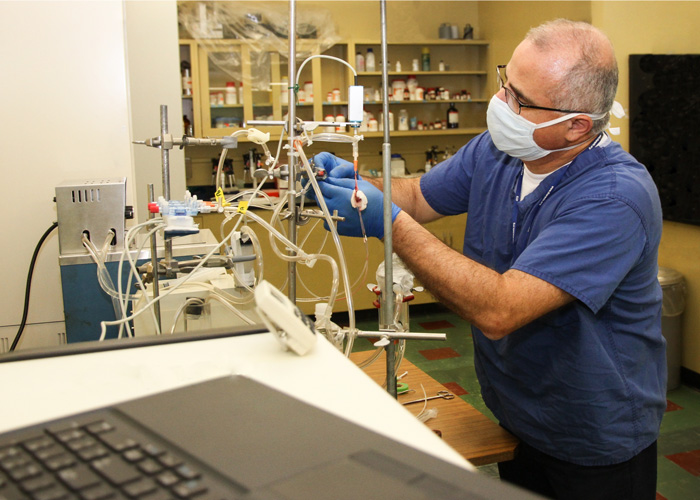Shafiee Dissertation Abstract
Remodeling the Tumor Landscape: Dll4, BACH1, and the Quest for Effective Breast Cancer Therapies
Dissertation Date: August 27, 2024
Metastatic dissemination is the primary cause of mortality for patients with solid tumors. Effective treatment of metastatic disease is hampered by the complexities of tumor biology, in particular, the heterogeneity of the tumor microenvironment (TME) and the emergence of therapeutic resistance. This thesis investigated the role of inherited Dll4 expression and tumor-intrinsic BACH1 status in modulating tumor angiogenesis, drug delivery, and therapeutic response to doxorubicin liposomes (Dox-Lipo) in a rat model of triple-negative breast cancer (TNBC). Using a combination of cutting-edge imaging techniques, computational analysis, and targeted genetic manipulation, we demonstrated that inherited Dll4 expression levels impact vascular function and nanoparticle delivery. Specifically, rats with low Dll4 expression (SS.BN3) exhibited a more normalized tumor vasculature, slower indocyanine green (ICG) washout kinetics, and greater sensitivity to photothermal therapy (PTT) than those with high Dll4 expression (SS), despite a paradoxical increase in tumor blood vessel density in SS.BN3. Congenic mapping of the SS.BN3 consomic strain, in conjunction with RNA sequencing analysis, localized a host TME modifier locus on chromosome 3 containing the Dll4 gene. These results were corroborated by intravital microscopy, which revealed a shift towards a normalized vascular phenotype in both SS.BN3 and BACH1 knockout (B1KO) tumors. Interestingly, despite the normalization trend observed in B1KO tumors, tumor growth was significantly enhanced, potentially due to the dual functionality of BACH1 in suppressing proliferation while promoting angiogenesis. Furthermore, we demonstrated that BACH1 knockout enhanced sensitivity to Dox-Lipo and induced a metabolic shift toward oxidative phosphorylation, while Dox-Lipo treatment itself induced a shift towards a more aggressive phenotype. These findings suggest that both inherited Dll4 expression and tumor-intrinsic BACH1 status in the TME, as well as doxorubicin treatment itself, impact therapeutic response, providing a strong rationale for personalized therapeutic approaches that consider the dynamic and heterogeneous nature of the tumor microenvironment. This research highlights the potential of Dll4 and BACH1 as biomarkers for predicting treatment response and emphasizes the need for combination therapy strategies that leverage the interplay of Dll4, BACH1, tumor angiogenesis, and nanoparticle delivery for improved therapeutic outcomes in TNBC.
Return to Dissertation Schedule


